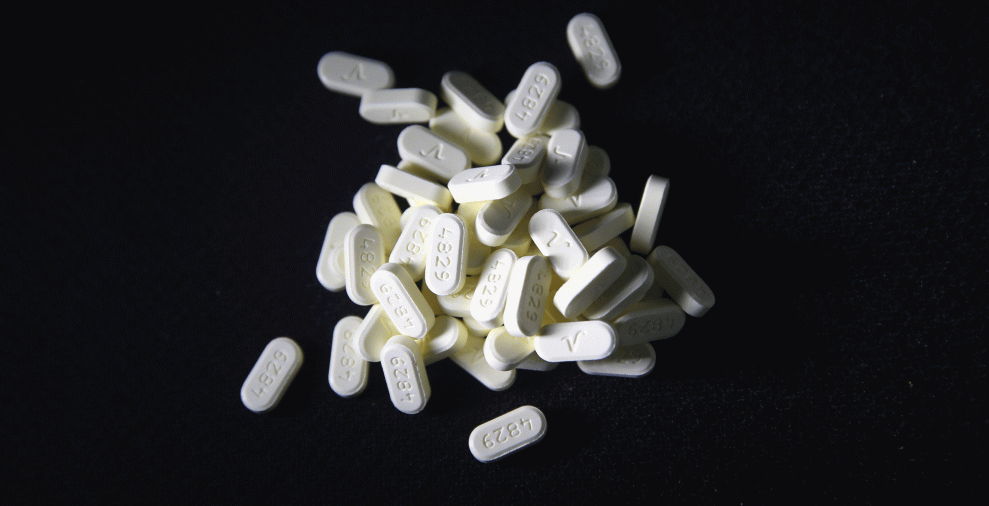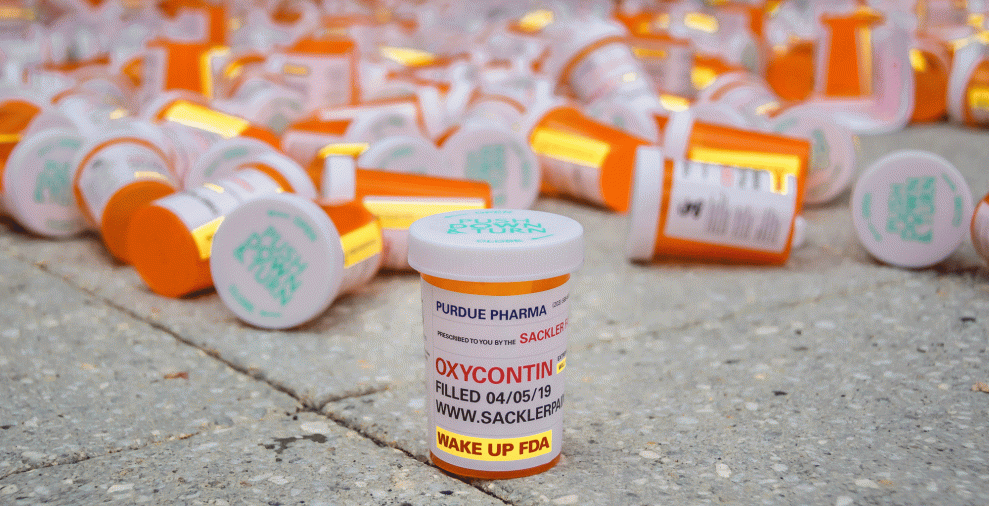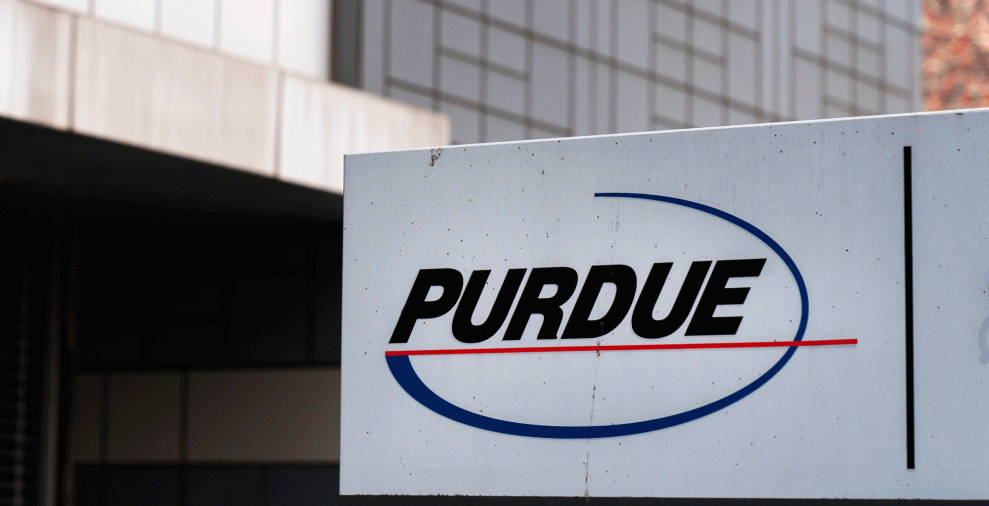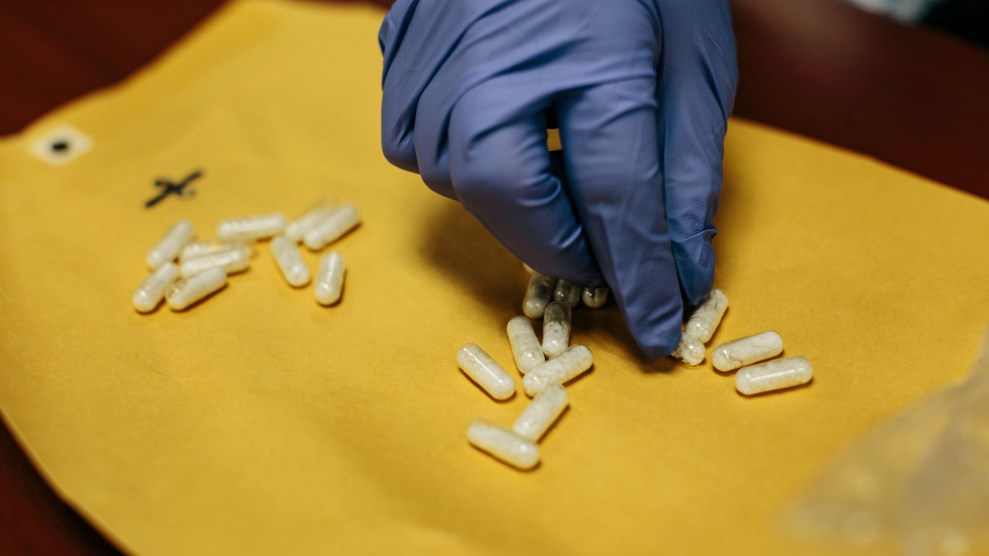
John Moore/Getty
Just hours before a high-profile federal opioid trial was to begin in Cleveland on Monday morning, drug companies reached a $260 million settlement deal with Ohio’s Summit and Cuyahoga counties. The two counties are bellwether plaintiffs—test cases for how the more than 2,700 counties, cities, and tribal lands suing drug companies in the same federal lawsuit would fare. Monday’s news suggests that a multi-billion dollar settlement deal resolving the thousands of cases is on the horizon.
Summit and Cuyahoga—and, indeed, all of the plaintiffs in the federal case—are grappling with competing demands. On the one hand, cash-strapped municipalities want to avoid years of protracted litigation and secure money to cover addiction treatment, emergency services, and other costs associated with responding to the epidemic. Cuyahoga and Summit Counties have been particularly devastated by the opioid crisis: Akron, in Summit County, rented refrigerated trailers to handle the influx of bodies; the Cuyahoga County medical examiner told me in 2017 that the overdoses amounted to a “tidal wave.”
On the other hand, settling might not garner nearly as much the plaintiffs would like: $260 million is far less than the more than $7 billion the two Ohio counties originally sought to cover addiction treatment, emergency services, and other costs associated with the epidemic. Crucially, settling enables drug companies to avoid airing dirty laundry during a highly anticipated trial. The details of the settlement have not yet been made public, but often, settlement terms require sealing, deleting, or shredding thousands of pages of damning evidence.
“I wouldn’t hold it against these counties or states that settle these cases because they desperately need the money to tackle this problem,” said Dr. Andrew Kolodny, who studies opioid policy at Brandeis University and who was a paid expert witness in Oklahoma’s recent trial against Johnson & Johnson. “The problem with settling is that the public doesn’t get to really see or learn about all of the wrongdoing. What’s become public is only the tip of the iceberg.”
Under the terms of the settlement in Ohio, the three companies responsible for distributing the majority of America’s drugs from pharmaceutical makers to pharmacies—McKesson, Amerisource Bergen, and Cardinal Health—will pay a combined $215 million immediately to Summit and Cuyahoga Counties to settle charges that they failed to report suspicious orders of drugs. Teva, an Israeli generics drugmakers, will pay $20 million and contribute $25 million in opioid addiction treatment Suboxone. (Walgreens, a defendant in the same case, didn’t settle; its case has been postponed.) Several other drug companies—including Purdue Pharma, Johnson & Johnson, and Endo—settled with the two counties earlier this fall.
For now, the drug companies that have settled still have to contend with the 2,700 other plaintiffs in the federal case (with the exception of Purdue Pharma and fentanyl maker Insys, which have declared bankruptcy). But Monday’s news suggests a willingness on behalf of the companies to pay now rather than face trials that would likely reveal internal emails, sales calls, distribution reports, and marketing strategies. “If I were those companies, I wouldn’t want [the exhibits] to see the light of day either,” said Jonathan Novak, a former Drug Enforcement Agency attorney who now represents plaintiffs in other opioid lawsuits. “The language that’s all over these documents—the emails, et cetera—it’s not a good look, and it’s not a humanitarian look.”
The exhibits that were already made public in the trial included, for example, a damning 2001 email from Purdue’s former president, Richard Sackler, about meeting with patient advocacy groups: “Our goal is to bind these organizations more closely to us than heretofore, but also to align them with our expanded mission and to see that the fate of our product(s) are inextricably bound up with the trajectory of the pain movement,” he wrote. Exhibits that came to light earlier this year in a separate opioid trial, Oklahoma’s case against J&J—the first such case to go to trial to date—showed how the company became the country’s leading supplier of opiate raw ingredients, growing mutant poppies in Tasmania and selling narcotics to Purdue, among other drug manufacturers.
Still, sealing evidence in drug cases is common practice. A recent Reuters investigation found that judges frequently sealed evidence related to public health and safety in cases involving drugs and other defective products without giving “their reasons for allowing secrecy, though they are required to do so.” One prime example: Back in 2001, West Virginia accused Purdue Pharma of misleading doctors about the addictive risks associated with its blockbuster opioid OxyContin. The discovery phase included thousands of internal memos, sales calls, and marketing plans. The evidence was never made public.
If evidence gathered over several years of discovery in the federal case is sealed, Kolodny worries that valuable information about the way the epidemic came to be—including the way that drug companies influenced politicians, medical journals, continuing medical education, and organizations that create standards for physicians and hospitals—will be lost. “If everything gets sealed and shredded as part of the settlement,” he said, “we never get to learn these lessons and act on them.”













